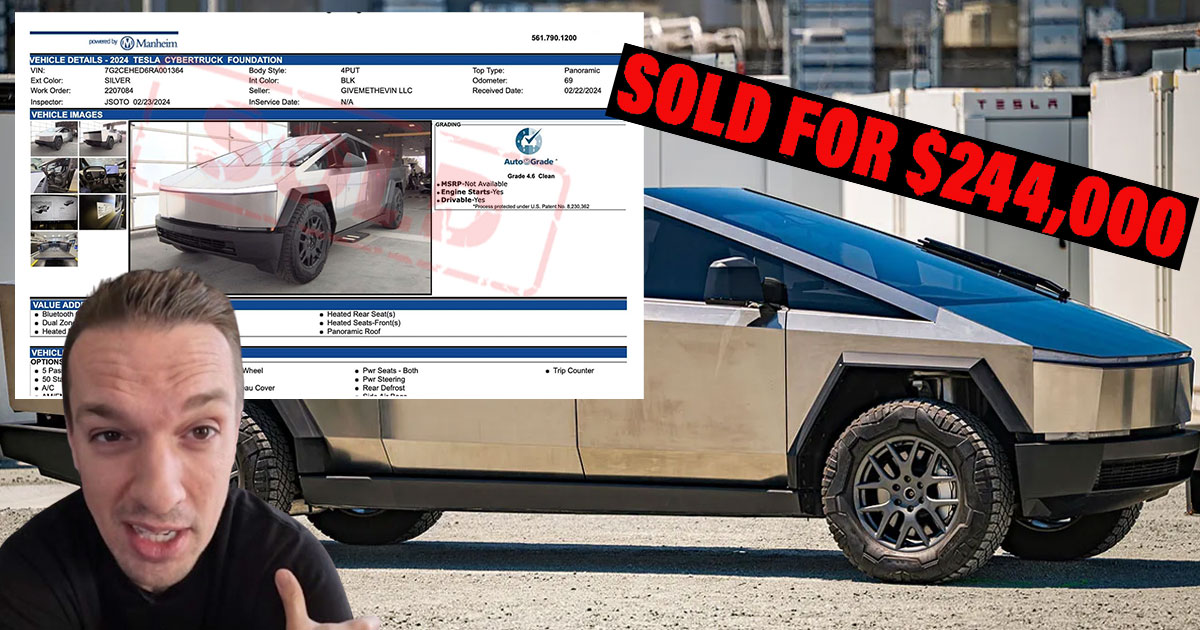New Cybertruck Auctioned Yields $244k and a Lawsuit

The correlation between the hottest new automotive releases and scalping has long been a contentious issue within the community. While capitalizing on market demand isn’t inherently problematic, reserving spots in line solely for profit without any genuine effort has been a persistently hot topic of debate that leaves some enthusiasts angry at the markup that results.
Some manufacturers have taken steps to combat this practice. For instance, the last iteration of the Ford GT was sold under the condition that buyers would hold onto it for a specified period, aiming to prevent scalpers from inflating prices and potentially tarnishing the car’s reputation.
One of the most public instances of violation of this contract came when Ford went after WWE Superstar, John Cena, for selling the car too soon.
Elon Musk, the face of Tesla, shares a similar sentiment regarding scalpers as they pertain to his latest creation, the Tesla Cybertruck. Known for striving to bring affordability to certain car models, Musk imposed a condition on Cybertruck buyers: they must agree not to sell the truck for a full year.
However, despite this measure, some individuals have still attempted to profit from early Cybertruck sales early on. Recently, the first auction of a Cybertruck fetched a staggering $244,500, indicating a profit of approximately $150,000 for the seller, who held onto the vehicle for only a few weeks before sending it to auction.
While Tesla retains the right to pursue legal action against such sellers, seeking damages of the contractual $50,000 or the profits earned from the sale, whichever is greater, the feasibility of such endeavors remains questionable. Pursuing lawsuits could potentially damage Tesla’s brand reputation and incur significant costs, with uncertain outcomes despite the contractual agreements signed by buyers.
Auction footage shows a Cybertruck sold to an Orlando Porsche dealership, sparking questions about its fate—collection addition or profit-driven resale.
In the face of such challenges, the automotive industry grapples with finding effective solutions to curb scalping practices while balancing brand integrity and financial considerations.

